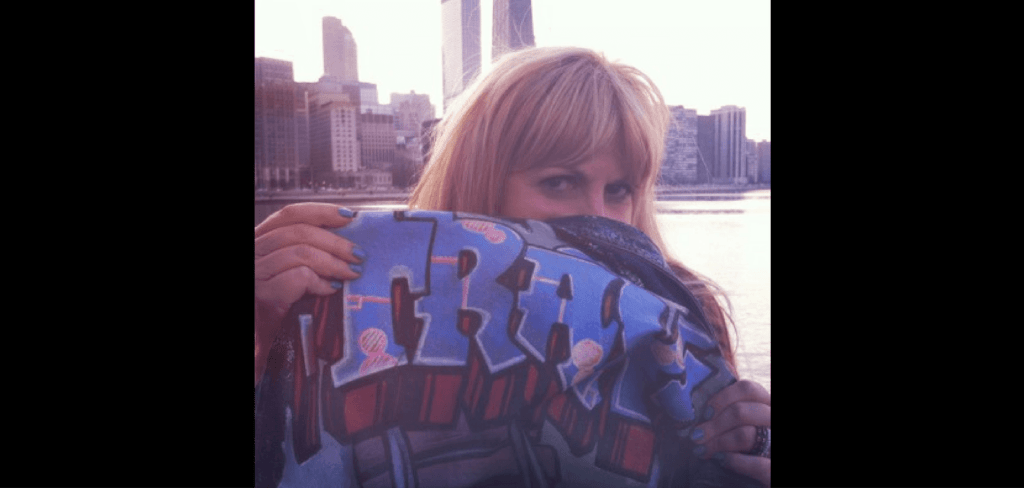
We spoke to Screamin’ Rachael Cain about women in house music.
Screamin’ Rachael Cain is one of the most prominent and influential women in house music history. She’s still hugely active today, touring with her fellow house pioneers on the label she founded and runs: Trax Records.
Unfortunately enough, Rachael’s position as a successful, celebrated female DJ, producer and label head makes her unusual. As several publications pointed out this year, women in electronic music are shamefully underrepresented. It’s not that there is a lack of talented female producers and DJs; take a glance at the MN2S DJ roster and you’ll find luminaries like Little Boots, Ellie Cocks and Claire Morgan alongside Screamin’ Rachael herself. Clearly, the problem lies elsewhere.
Asked if she ever found her gender to be a problem, Rachael Cain has a simple reply. “It was a problem,” she says. Particularly when she started out, the atmosphere was sometimes disgusting. “People were actually acting like you had to give sexual favours to get ahead in the industry way back then. It was such bullshit, of course.”
Rachael says house and hip hop have both been male-dominated almost from the very beginning. “When I first got to New York and I worked with people like Doug E Fresh and Melle Mel, there weren’t really very many women that were even recognised,” she recalls. There was, however, one notable exception. “Years ago when I met Sylvia Robinson I thought, ‘What this lady has done for hip hop is what I want to do for house music one day.’”
Sylvia Robinson, of course, was the woman behind the SugarHill label, which produced The SugarHill Gang (now on MN2S). Robinson built the label from the ground up, and played a vital role in popularising hip hop, establishing the genre as a credible commercial force.
Rachael says meeting Sylvia Robinson was crucial to her career. “She just inspired me. Here was this woman—a singer, a writer, a producer. She made me realise that I didn’t just have to be a singer, I didn’t just have to perform. I just think that’s the way most females in the industry are understood. They’re an image, they’re a Rihanna, they’re a Madonna. So meeting Sylvia showed me I could do more than that. Not that doing that is not important, it is important. But I wanted to do something else. I had a whole kind of vision about the music that I loved, and about taking that music to a different level, because I believed it could go there.”
Because of Robinson’s role as The First Lady of Hip Hop, Rachael was disappointed when she sold SugarHill records. “She didn’t take it all the way. I knew the moment she sold SugarHill that it would be a turning point of the whole movement, and that Russell Simmons was essentially going to take over and that all the SugarHill acts—which I thought were really the best acts—would never historically have their place the way the Run DMCs and the LL Cool Js did. I wanted to make sure that didn’t happen for house music, and I believe somehow I did.”
Preserving the music of Trax has been a major goal of Rachael’s. “Even though there are people that have made more money than us, I think we have preserved our place in history, so that people know who did it.”
Unfortunately, other industry executives sometimes overlook Rachael’s passion and vision, clouded by their own sexism. “There are people that say, ‘Women are so emotional. They can’t look at it as just dollars and cents.’ I still hear that!” As the owner of Trax Records and its entire rich back catalogue, Rachael is often approached by major labels seeking to buy her out. “When they come to me with these big offers I get people saying, ‘Why wouldn’t you just sell it?’ or ‘Why wouldn’t you just step out?’ or ‘What’s wrong with you? You’re so emotional, you’re female.’ They want to think that I am allowing my ‘female hormones’ to make me a little bit crazy, I guess. But it’s too bad because I’m just passionate about the music. I don’t want the music to be cheapened or taken away from its legacy.”
We asked Rachael what she would say to women in the industry today, with the odds stacked against them due to ingrained prejudice. “Stay strong,” she says. “Have a vision, and don’t let anybody convince you that you can’t do it because you can. You’re gonna come up against a lot of opposition.”
Now, further into her career, Rachael Cain is in the position to act as someone else’s Sylvia Robinson. When we point this out to her, she says, “I appreciate that because hopefully there will be a woman out there that I’m going to inspire who will say, ‘Rachael did it. Now I’m gonna do it.’” We tell Rachael we hope there will be. She tells us, “There will be. In today’s world we’ve come so far on so many things, so you’d think we’d have come further with women DJs, and women actually having an influence on the publishing and catalogue side of things. But I think it’s coming.”
Book Screamin’ Rachael or Trax Records now to bring the First Lady of House to your venue.

